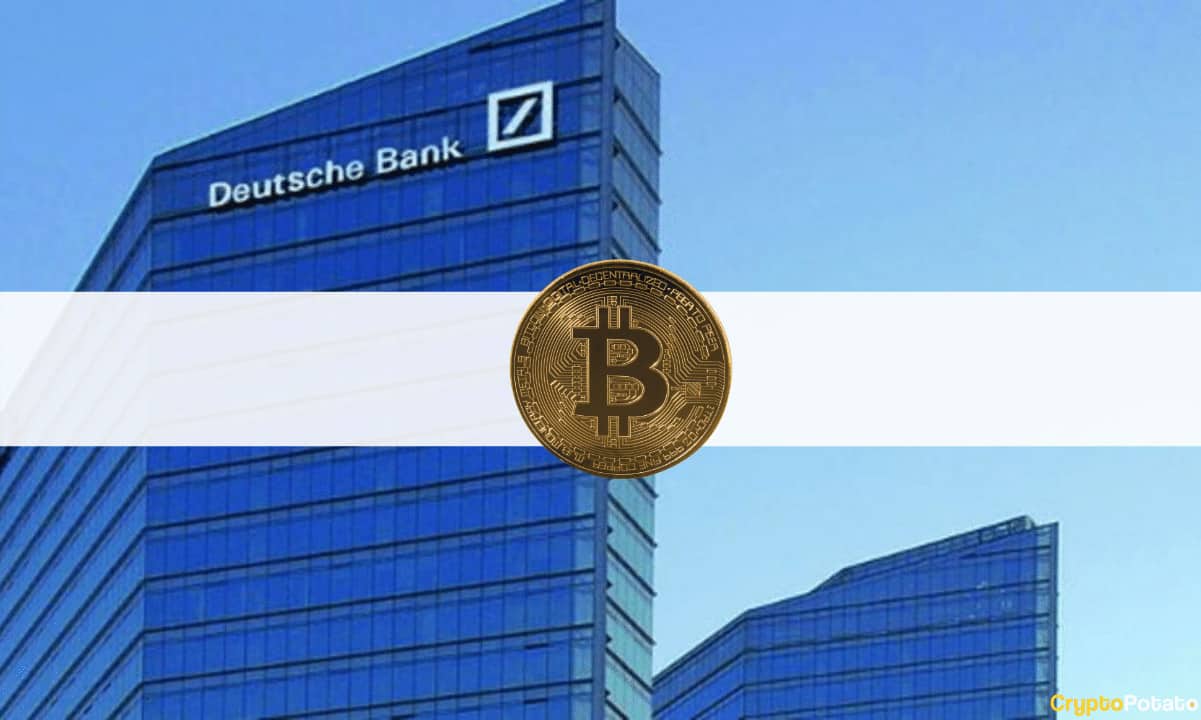
Marion Laboure – Macro Strategist at Deutsche Bank – believes bitcoin has the potential to become the “digital gold” of this century. However, she expects the cryptocurrency’s price to be “ultra-volatile” in the next few years.
Laboure also praised Ethereum’s use cases, calling the asset “digital money.”
BTC – Gold of the future
According to Marion Laboure – Analyst and Macro Strategist at Deutsche Bank – Bitcoin possesses all the necessary qualities to step in when the world suffers from rising inflation, doubt, and fear due to the COVID-19 pandemic and the governments’ actions. governments. Since her supply is fixed (there won’t be more than 21 million BTC), she said the asset could be a smart choice as a hedge against rising inflation.
The increased control by authorities over the population could be another factor that would make bitcoin attractive to the people. Laboure recalled that in such cases, over the years humanity has turned to assets that were not under the jurisdiction of governments, such as gold. With that said, the executive believes BTC could become the “21st-century digital gold.”
It should be noted that Deutsche Bank has had a different opinion on the matter in the recent past. Last year, a report from the German multinational investment bank stated that bitcoin’s high volatility is an obstacle that makes the digital asset not a “reliable source of value.”
According to Laboure, however, the increased fluctuations in BTC would not last forever. The asset remains “risky” as of the moment and could be “ultra-volatile in the foreseeable future” but just like gold, which has also experienced this issue, BTC would eventually overcome it.
While bitcoin is the pioneer of the crypto space and the largest digital asset by market cap, Laboure has also praised Ethereum’s merits. She pointed out that it is more than a cryptocurrency as it offers many applications and use cases such as decentralized finance (DeFi) projects.
In fact, most of the trendy non-fungible tokens (NFTs) are part of the Ethereum blockchain and she noted that ETH could be “digital money”.
Laboure concluded that no other cryptocurrency would become stronger than Bitcoin or Ethereum in the next five years.

Crypto’s Obstacles
The Deutsche Bank strategist also spoke about the downsides of the cryptocurrency space, with the lack of regulation being the main one. She sees the industry much more settled once this issue gets solved. The environmental concerns that crypto mining causes are the other big hurdle:
“In one year, Bitcoin uses roughly the same electricity as the entire population of Pakistan (around 217 million people),” she recalled.
This has been a growing concern this year, but the number of companies and parties aiming to solve it has increased exponentially as well. For example, several major cryptocurrency exchanges have already launched initiatives that would make them carbon neutral, including FTX, BitMEX, and Gemini.
CBDC, cash and crypto
Laboure also gave her two cents about central bank digital currencies. She prefers decentralized cryptocurrencies saying that the centralized nature of CBDCs would not be attractive to society. In any case, she believes both assets together with cash would successfully co-exist in the economic network.
On another note, Deutsche Bank CIO Christian Nolting has expressed a somewhat different view on the matter. Back in May, he said that the impending launch of CBDCs would be a major threat to bitcoin in terms of serving as a currency:
“A widespread introduction of CBDCs accompanied by stricter cryptocurrency regulations could create a more difficult environment for crypto assets, as some of their advantages compared to traditional financial assets would fade in the longer term.”


















